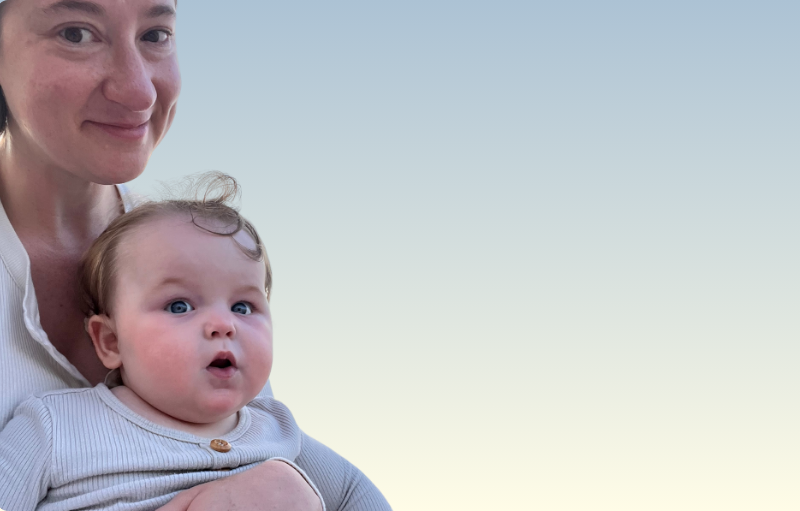Two brave parents said yes to genome-based newborn screening—and found answers right away when their newborn started having seizures.
February 19, 2025 • 4 min read

Lili remembers in detail the first few hours after her baby was born. “A nurse came into the room and said, ‘First time mom, diaper’s on backward.’ Then someone else came in and asked my husband and I if we wanted to participate in a new study for newborns called the GUARDIAN study. It would involve a cheek swab, and the test would then provide us with info about her genetics. We said yes. The expectation was that we’d enroll and never think about it again, because we expected nothing to be wrong.”
When Margot started having seizures six weeks later, the fact that Lili and Colin agreed to the test enabled the family to get a diagnosis very quickly—within weeks of the onset of Margot’s symptoms. The GUARDIAN results arrived even before Margot’s doctors had completed their own tests to find the cause of her seizures.

Those genome sequencing test results showed Margot has a rare condition called CDKL5 deficiency disorder. “I’ll never forget getting the GeneDx report. It was very informative and emotionally overwhelming. But the information gave us power. We were able to make changes immediately that were practical and had real implications for how we take care of Margot.”
The family found a pediatric neurologist in New York City who specializes in this condition. The physician prescribed a specific drug for epilepsy that controlled Margot’s seizures, and Margot got access to experimental treatments and therapies.
At first, the family was the only one in New York City who had a child with CDKL5 deficiency disorder. But through Facebook, Lili connected with two other families whose children have the same diagnosis and who were about to move to the City. Today, they are all friends who meet up regularly.
“The ability to share news, tips, and advice is invaluable, as is the support from those who have a shared the grief, hope, and love that comes with having medically complex children. It’s a very different type of support than what you get from well-meaning friends and family. Sometimes, it’s hard for their support to not ring hollow, since they haven’t had your experience.”

Margot is one-and-a-half years old now. “Everyone talks about what a great baby Margot is, because she really is. She’s a joy. We like to say she’s the world’s best baby: very curious, smart, and chatty. A little stubborn; she knows what she likes and doesn’t like. And absolutely loves to snuggle. She has a curiosity about her and loves to be outdoors,” gushes her mother, Lili.
Lili concludes, “There are things that the families in my support group know that the doctors don’t know. It took another parent to remind me that my job right now is to enjoy Margot, because she’s a sweet little baby—and not to miss this phase of her life because I am focused so much on her treatment.”